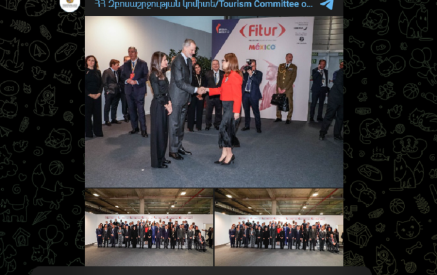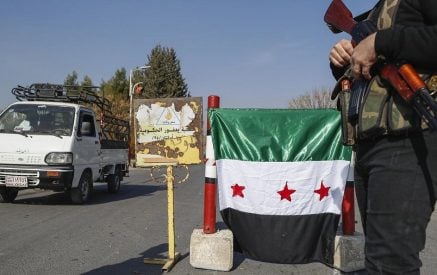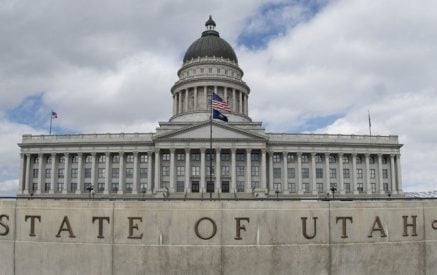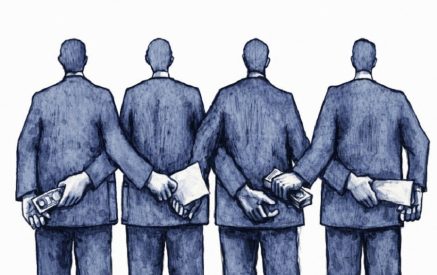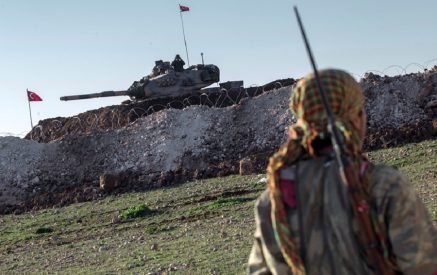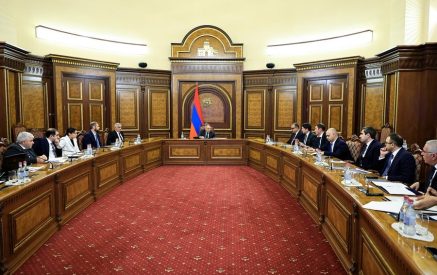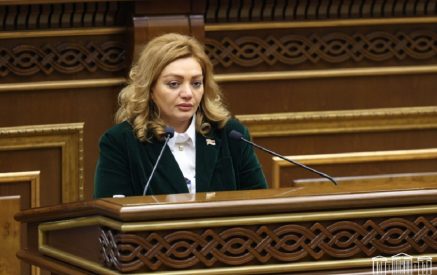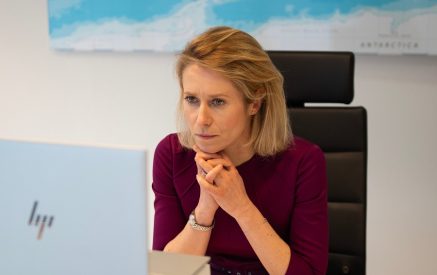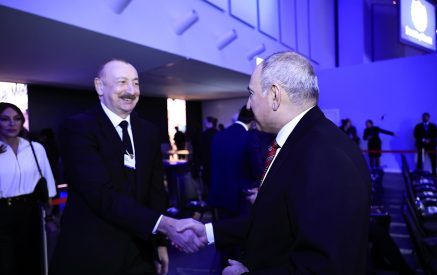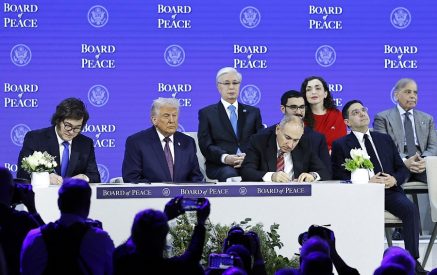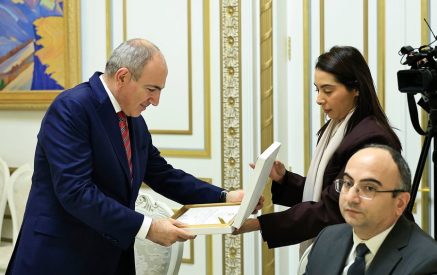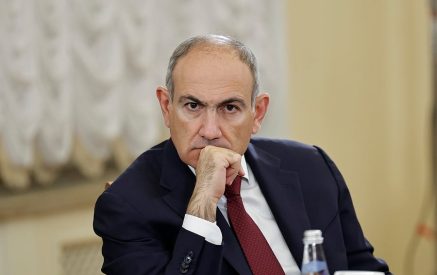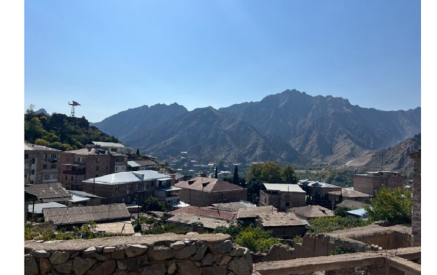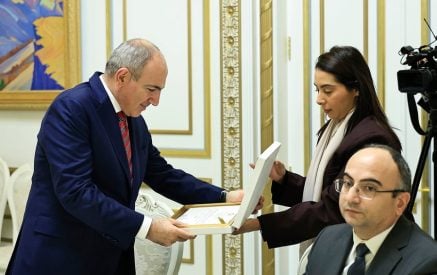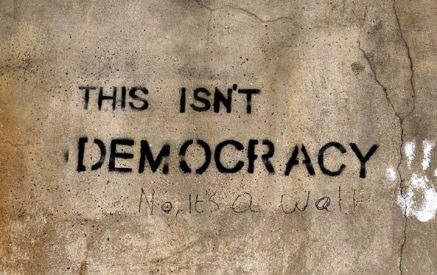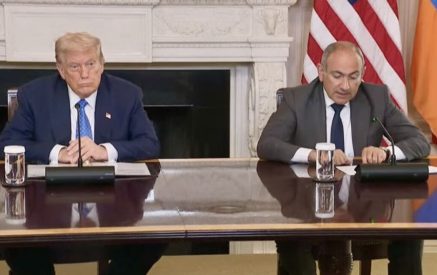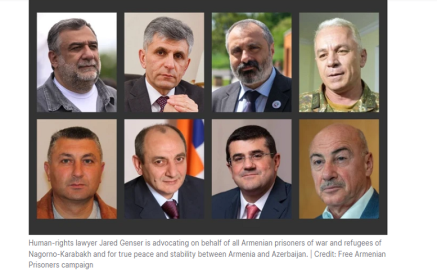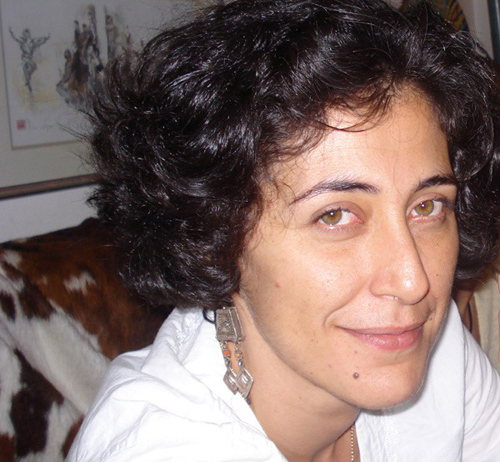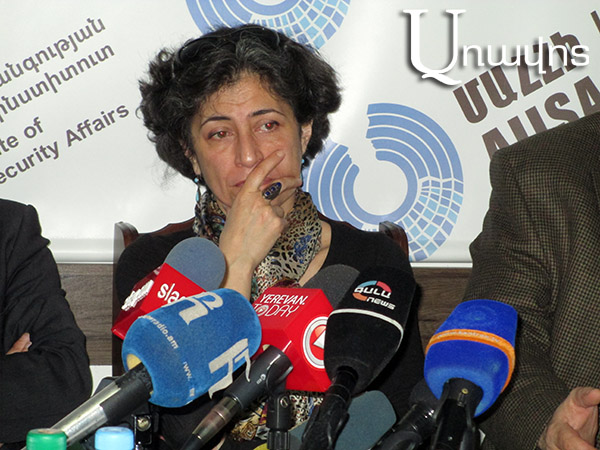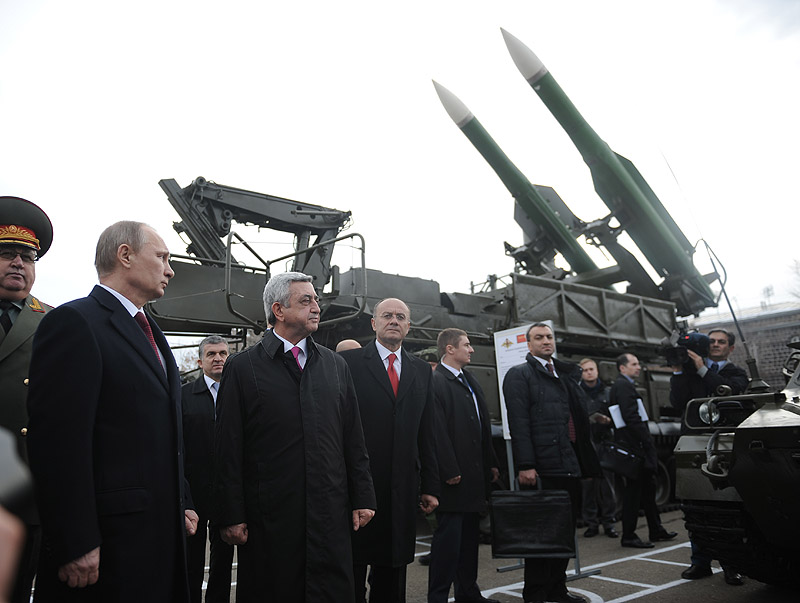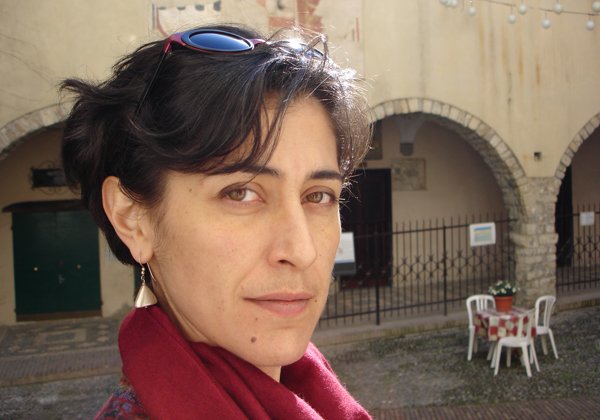According to Marta Ayvazyan, former head of NATO Desk, RA MFA the authorities are forcibly or voluntarily working towards destroying the independence of Armenia.
– Generally how would you assess 2013 for Armenia from the perspective of foreign policy?
– From the perspective of both foreign and domestic policy the 2013 can be definitely called a year of lost prospects and opportunities and launch of the process of giving up the RA power. In order to evaluate the current situation one should also consider it in the RA-EU, RA-RF dimensions. On the one hand, the results of regular elections held in Iran and subsequent warming up of Iran-US-EU relations were a sign of major geopolitical changes. Armenia considering the quality of its relations with Iran could surely take advantage of this situation at least in terms of diversifying its energy security and decreasing its energy, as well as economic dependence from the RF. On the other hand, the progress of EU neighborhood policy, possible initialing of the Association Agreements by Georgia and, particularly, by Armenia, which alongside with opening serious prospects for development and system changes would pave the way for peace and stability in the region and, therefore, limit RF’s influence on the RA and weaken the RF’s position in our region. Such developments would completely take the South Caucasus out of Russian’s influence over time certainly affecting the North Caucasus and the risk of split of the RF along the North Caucasus border could become substantial. These prospects could not be of no concern for the RF and Russia using all the tools available in its arsenal, including some opposition political forces loyal to it for various reasons, did everything possible for the protection of its political and economic interests, for removing possible threats from its borders and for neutralizing possible risks to its territorial integrity. And it was mainly done to the detriment of the RA interests, sovereignty and future of our nation through manipulations of our security problems, blackmailing and use of personal interests of the current authorities by undermining the initialing process of the RA-EU association agreement, imposing RA’s membership to the Customs Union. All this, coupled with the processes in progress with the CSTO and RA-RF military cooperation, limited the RA sovereignty to the possible extent and virtually turned Armenia to a powerless country being a stability and security threat in the South Caucasus in the form of Russia’s military base.
– Following the meeting of Armenian and Czech presidents in the Czech Republic Serzh Sargsyan announced if we decided to join the Customs Union we have to do it as quickly as possible: “Why did we slow down? If our decision was based on our national interest, then the decision should be made a reality as quickly as possible.” What is Armenia’s interest in joining the CU, if we consider both economic and political factors?
Read also
– Among the already visible and tangible effects of joining the CU is price increase of consumer goods of all kinds, unconstitutional restriction of independent foreign economic relations, drastic drop of Armenia’s already low international image following the unexpected decision of the Armenian authorities and announcement on joining the CU on September 3 of the last year leading to decreased international cooperation opportunities in different areas and reduced ratio of possible investment projects, as it happened in the case of Ukraine-China relations. Hardly there will be anyone who would be able to present this as a national interest. As for Serzh Sargsyan’s statement and generally, the behavior of our government in the last 5-6 months, one can assume that for some reason, forcibly or voluntarily, they are moving towards destroying Armenia’s independence as quickly as possible absolutely turning it both form- and content-wise into Russia’s voiceless attachment and evading from the responsibility of governing an independent state.
– In your opinion, what is happening in Ukraine: fight for Euromaidan or Russia-Ukraine confrontation? Is the movement closer to the goals that were initially announced?
– Factors underlying the Ukrainian developments are numerous, the causes of this really nationwide wave of revolt are diverse ranging from centuries-old historical realities to Western values of defense, European integration process and resulting development prospects and the fight against the current corrupt government. Ukrainian authorities through their police operations as well as Russian authorities through their evaluations of Euromaidan and support to the Yanukovish’s government operations against the Ukrainian nation contributed to the escalation of the confrontation and some of its content change. Uniting all these factors led to a situation that what is happening in Ukraine today can also be described as a struggle against the neo-empire ambitions of Russia and against its supremacy aspirations and for sovereignty, independence and development prospects. And today this movement has apparently achieved some success: Azarov’s government was released, January 16 laws were revoked, Yanukovych has admitted the possibility of holding extraordinary national elections.
– What will be the effect of Ukrainian practice on post-Soviet countries striving to get out of the Russian influence and, specifically, is it possible to have similar agenda in Armenia or with joining the Customs Union this issue can be considered out of the agenda?
– Victory of Euromaidan, more precisely, of the Ukrainian people will have a certain impact and consequences for the entire post-Soviet space, including Russia itself; and this influence will become evident over time at international, interstate and national levels. On the one hand, Moscow’s position in the international arena will weaken leading to activation of western and non-western states in the post-Soviet countries, on the other hand, this victory will boost getting rid of the RF influence or non-democratic regimes supported by the RF, as well as of the RF programs serving to the Russian interest, including the same CU to avoid respective actions of nations and countries having aspiration. Such developments may also lead to another revolt against the Russian authorities and to centrifugal sentiment in the same Russia. In case of Armenia such progress and results will depend first and foremost on the formation of opposition enjoying public and international trust of the respective political forces, united by the idea of independence and Armenia’s national interests and strong due to this aspect; without it I find somewhat useless and even harmful for our country’s future to just cherish hopes and condition our future with the Maidan victory or defeat or with any other external process.
EMMA GABRIELYAN


